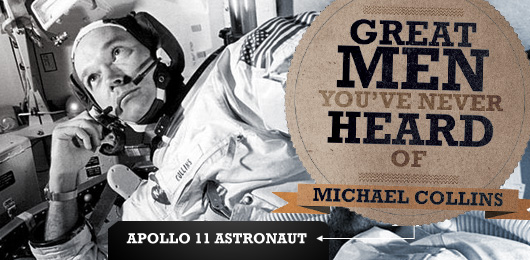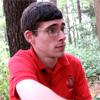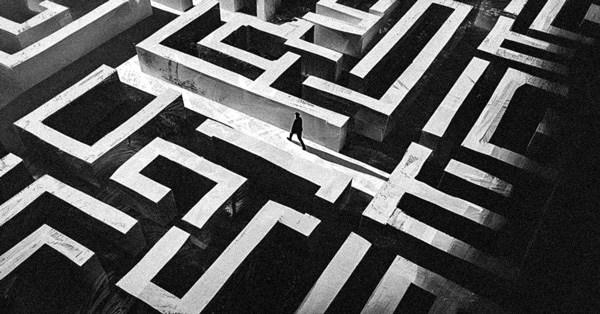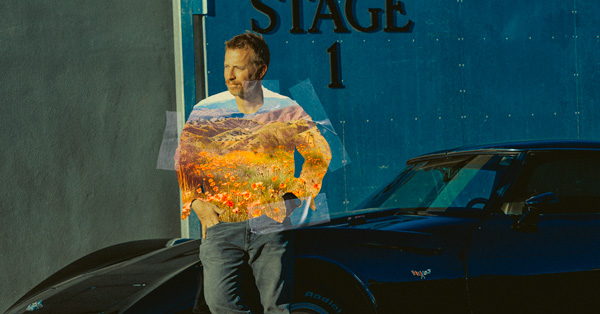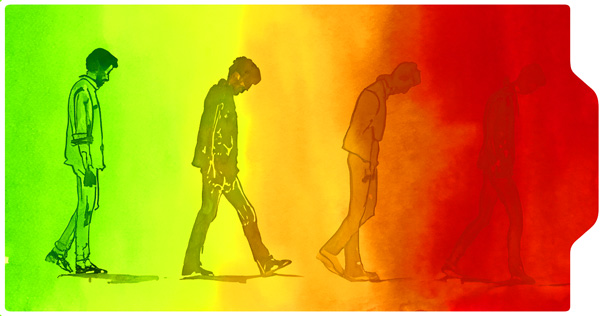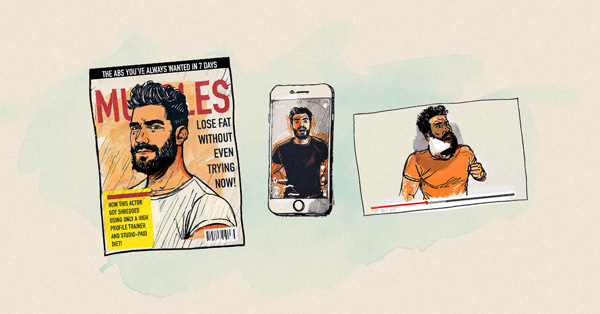Editor's Note: This is a continuation of Andy's blog post about another Great Man You've Never Heard Of, Norman Borlaug on his Art of Manliness Community blog.
Some great men history over looks entirely. While other great men get overshadowed by their comrades being launched into the lime light, leaving them to fade into obscurity. The recent completion of the LCROSS mission got me thinking, and inspired a, “Space: the final frontier,” in my most William Shatner-like voice. In my book, any person that gets launched into outer space is worthy of the title of ‘Great'. However, LCROSS went to the Moon, and that is where we shall go, as well.
In 1969, the world rejoiced with the phrase, “The Eagle has landed.” Mankind had finally landed on the Moon. Everyone has heard of the first man on the Moon, Neil Armstrong. Many people even know of the second, Buzz Aldrin. A lot of people do not realize, however, that it was a three-man mission. Michael Collins remained on the command module to pilot it. Michael Collins is a “Great Man You Have Never Heard Of”.
Collins was Born on October 31, 1930 in Rome, Italy to United States Army Major General James Lawton Collins. He moved around a lot as a kid, living in Rome, Oklahoma, Governors Island, Puerto Rico, and Virginia. After graduating from the United States Military Academy, he joined the Air Force. In 1960 Collins applied for and was accepted to the Experimental Test Pilot School at Edwards Air Force Base in California. He decided to become an astronaut in 1962 when John Glenn in Mercury Atlas 8 circled the Earth in 90 minutes. When NASA was accepting applications for their third group of astronauts, Collins immediately applied and was accepted into the program.
Collins's first assignment was as the back up pilot for Gemini 7. After the completion of that mission, he was assigned to the crew of Gemini 10 along with John Young. Their three day mission called for them to rendezvous with two different Agena Target Vehicles, undertake two Extra-Vehicular Activities, and perform fifteen different experiments. With the launch of the Apollo missions, NASA decided that the pilot of the command module should have some experience piloting in space. This change in policy is what shifted Collins from the lunar module, which he was training for, into the command module for the Apollo 11 flight.
During the Apollo 11 mission, Collins's role was to pilot the command module, which remained in orbit, while the lunar module descended to the lunar surface with his crew mates. After the departure of the lunar module, Collins orbited the Moon and waited for the lander to ascend back into orbit and dock with it. Each orbit of the Moon took about two hours, and according to his own recollection, he orbited the Moon 20 to 22 times. When he passed behind the Moon, Collins became Earth's farthest solo traveler, separated from the Earth by 250,000 miles of space and the girth of the Moon. He was also out of contact with Mission Control while on the far side of the Moon because the Moon blocked the radio transmissions.
After the Apollo 11 mission, Collins left NASA and held several positions. Most notably he became Assistant Secretary for Public Affairs, and director of the National Air and Space Museum. He also wrote a few books. His autobiography, Carrying the Fire: An Astronauts Journey, Liftoff: The Story of America's Adventure in Space, Mission to Mars, and a children's book, Flying To the Moon: An Astronauts Story.
So the next time you are at the pub, in the cafeteria, or even by yourself, call for some quiet, and raise a glass of your preferred beverage to Michael Collins, the forgotten man of the Apollo 11 Mission.



